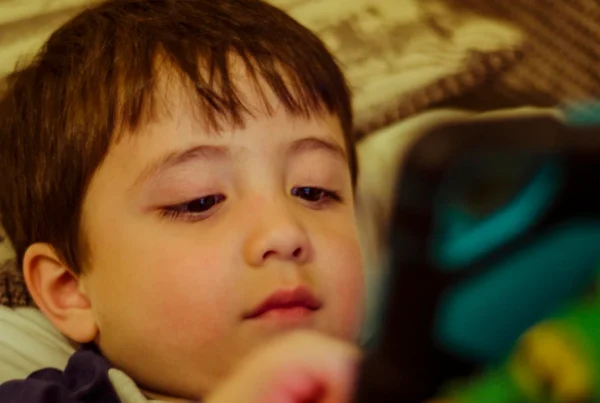“What’s the best time to study?”
Many parents ask this question as they try to support their child’s academic growth. But the answer isn’t as simple as “morning” or “evening.” The truth is, there’s no one-size-fits-all answer. Each child is uniquely wired, and understanding their energy and concentration levels can make all the difference in helping them learn more effectively.
In this article, we’ll explore how learning rhythms, biological clocks, and daily habits affect study performance. We’ll also share practical tips to help parents create a supportive home environment for creative learning, grounded in scientific research and guided by biblical values.
Read also: 8 Types of Learning Styles: Knowing Your ChildsBetter
Understanding Scientific Timing of Biological Clocks (Chronotypes)
Have you ever noticed that some children are bright and alert early in the morning, while others seem to “wake up” only in the afternoon? This difference has to do with what scientists call chronotypes, which are natural patterns in our biological clocks that determine when we feel most awake and productive.
Generally, people fall into three chronotype categories. Morning types, or “larks,” tend to be most energized in the early part of the day and prefer a morning study routine, getting things done before noon. Evening types, often called “night owls,” may struggle with early morning hours but thrive later in the day. In between, there are individuals with more balanced energy patterns who perform reasonably well throughout the day without a strong preference for morning or night.
By observing your child’s energy levels and behavior throughout the day, you can begin to identify which category they fall into. Do they wake up eager to start the day and concentrate easily after breakfast? Or do they seem to find their focus later in the afternoon or evening? Paying attention to these rhythms can help you schedule learning activities at times when your child is naturally more alert and focused.
As parents, recognizing and embracing these differences can be a meaningful reminder of God’s intentional design. Psalm 139:14 says, “I praise You because I am fearfully and wonderfully made.” Every child is created with unique tendencies, including how and when they learn best.
What Science Says About the Best Study Time
Scientific research shows that different students learn best at different times of the day. While personal rhythms vary, studies on high school and college students reveal clear trends in focus, memory retention, and problem-solving. When families understand the best time to study based on these rhythms, they can support more effective and enjoyable study routines at home and school.
Let’s explore the three most common learning time preferences. Each one has a few benefits that can improve brain function, enhance study sessions, and help students stay consistent with a healthy routine.
1. Morning Learners (Morning Person)
Morning learners often perform best after a good night’s sleep. When students wake up after sleeping 7 to 9 hours, their brains feel refreshed and ready to focus. The early morning hours offer a calm and quiet environment with fewer distractions. These conditions support deep focus, memory retention, and critical thinking, especially when studying analytical subjects like math or science.
Studying in the morning also helps students make the most of natural light, which boosts alertness. When students follow a consistent sleep schedule and build a morning study routine, they tend to grasp concepts more easily. For those who pick mornings as their main study time, the early hours can lead to highly productive and focused sessions.
2. Afternoon Learners
Some students take longer to fully wake up, so they reach their peak energy levels in the afternoon. During this time, the brain has already warmed up from earlier activity, which makes it easier to apply new knowledge and stay engaged. Afternoon learners often benefit from a balanced mix of energy and concentration levels that support both individual and group study.
This part of the day is flexible and allows space for creative learning, collaborative tasks, or light review. Although a small dip in energy may occur after lunch, a good afternoon meal and short break can help students reset before continuing with more study sessions. Following a steady study schedule during this time often leads to better processing and deeper understanding.
Read also: Foster a Growth Mindset for Learning: What Is It and Why Is It Important?
3. Nighttime Learners (Night Owls)
Some older children, teenagers, and young adults prefer studying at night. These nighttime learners, often known as night owls, may find it easier to stay awake, focus, and retain information in the evening hours. Their energy levels and brain function often improve as the day goes on, especially if they have had enough sleep the night before.
According to recent studies, night owls can show strong memory retention and reasoning skills when their study sessions align with their natural circadian rhythm. However, it is important that they maintain a consistent sleep cycle and avoid staying up too late. A pleasant night’s sleep, combined with a balanced diet and light physical activity, supports both academic performance and overall well-being.
7 Practical Tips for Parents
So, how can you support your child with each of their best learning time at home? Here are some tips you can apply at home:
1. Observe and Adapt
Children learn best when their study time aligns with their natural rhythm. Some children are morning learners who thrive when studying in the morning. They experience more mental clarity and deep focus during the early hours. Others are nighttime learners who find better concentration in the evening hours when there are fewer distractions.
Take time to observe your child over a few days. Do they pick mornings to study with more energy and alertness? Or do they do better studying at night, once all the distractions have faded? Brains tend to follow a pattern known as the circadian rhythm, which affects energy levels and alertness throughout the day. Understanding your child’s individual preferences allows you to plan study sessions during their most effective hours.
2. Create a Consistent Sleep Cycle
Sleep plays a vital role in memory retention, mood regulation, and brain function. Children need an average sleep of 8 to 10 hours. Without enough sleep, they may feel tired during the day and struggle to concentrate or retain information.
A healthy routine should include a consistent bedtime, regular wake-up time, and natural light exposure in the early hours. Encourage your child to eat a balanced diet, stay hydrated, and have a good afternoon lunch to maintain energy for later study sessions. Avoid screen time before bed to help them fall asleep easier.
Exposure to natural light in the morning also supports eye muscles and reinforces the body’s internal clock. These small adjustments can significantly improve focus and concentration.
3. Encourage Short and Focused Study Sessions
Long hours of study without breaks can lead to burnout and poor memory retention. Instead, encourage your child to use practical timing strategies such as the Pomodoro Technique, which involves 25 minutes of uninterrupted study sessions followed by a 5-minute break.
This method increases productivity while allowing the brain to reset. Spreading out review sessions during the week, instead of cramming everything into one day, is more effective for long-term memory.
Help your child plan their time to study during early hours or evening hours, depending on when they function best. This structure makes learning less overwhelming and more manageable.
4. Keep Open Communication
Ask your child how they feel about their current daily routine. Are they stressed or feeling tired? Are there all the distractions preventing them from focusing? Listening and being willing to adjust their routine builds trust and motivation.
From a biblical perspective, taking care of our bodies and minds is a form of worship. As 1 Corinthians 6:19–20 teaches, our bodies are temples of the Holy Spirit. Supporting your child’s physical and mental well-being is not just wise parenting; it is an act of faithful stewardship.
5. Integrate Prayer and Devotions into Study Routines
Before your child begins studying, take a few quiet moments for prayer or Scripture reading. Psalm 119:105 says, “Your word is a lamp to my feet and a light to my path.” This small step invites God into their study time and helps them approach learning with peace, purpose, and humility.
Encouraging devotionals helps children see that their learning is not just an academic task but also a way of stewarding the mind God has given them.
6. Set Realistic Goals and Celebrate Progress
Break down study tasks into manageable steps that align with your child’s energy levels. Whether they are studying early or during evening hours, celebrate consistency, effort, and small achievements. Avoid focusing only on test results.
Colossians 3:23 reminds us, “Whatever you do, work at it with all your heart, as working for the Lord.” When students learn to value the process, they build perseverance and confidence, knowing their worth comes from Christ, not just performance.
7. Partner with a School That Supports Your Child’s Unique Learning Styles
While much of this can be done at home, choosing the right school is equally important. At Sekolah Pelita Harapan (SPH), we believe in enabling students to thrive by respecting how each child learns. Our approach to education includes flexible homework policies that allow time for rest, family, and personal growth.
We also offer learning support and group study opportunities tailored to each student’s needs. By applying scientific timing principles and recognizing the benefits of studying during each student’s peak hours, we help each learner reach their full potential.
Read also: 5 Fun and Easy Preschool Learning Activities at Home
Ready to Help Your Child Thrive?
If you’re looking for a school that understands the importance of learning rhythms and delivers world-class academic programs, consider Sekolah Pelita Harapan (SPH). As a trusted Cambridge and International Baccalaureate school in Jakarta, SPH offers a well-balanced curriculum that supports each child’s unique pace while fostering character, critical thinking, and Christ-centered values.
At SPH, we go beyond academics. Our International program is designed to nurture intellectual curiosity and global-mindedness, while ensuring students are empowered to study effectively, when and how they learn best. With a supportive environment, personalized attention, and a strong focus on holistic development, your child is equipped to grow not only as a learner but as a whole person. Enroll your child today and begin a meaningful educational journey with SPH!









